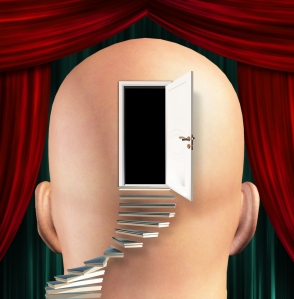
05 Feb Psychopathy and Relationships
 We strive for internal balance each and every day. It is a constant struggle to maintain some sort of harmony between our beliefs, ideas, values, and the behaviours related to them. An example of this is someone who continues to smoke despite believing that it is unhealthy. Although they hold the belief that smoking is not beneficial to their health, the smoker will continue to smoke because they may enjoy smoking, or perhaps because they believe that the chances of a decline in their health are not as serious as others make them up to be. This is cognitive dissonance. Explained simply, cognitive dissonance is psychological distress when two or more beliefs are contradictory. Those with cognitive dissonance often have a hard time differentiating reality from their internal fantasy and dream world. They will often justify their behaviours and contradicting beliefs with truly ridiculous notions. Returning to the example of the smoker, how is it possible that their health would not be at equal risk to other smokers? It is this fantasy thinking that makes the contradictions stick. The discrepancy in beliefs and actions can cause a vast amount of psychological distress, including but not limited to depression, anxiety, and negative self-image. With these contradictions comes a certain amount of denial within, though it is not always known to us. This denial allows us to hold these beliefs at the same time, while still maintaining the behaviour.
We strive for internal balance each and every day. It is a constant struggle to maintain some sort of harmony between our beliefs, ideas, values, and the behaviours related to them. An example of this is someone who continues to smoke despite believing that it is unhealthy. Although they hold the belief that smoking is not beneficial to their health, the smoker will continue to smoke because they may enjoy smoking, or perhaps because they believe that the chances of a decline in their health are not as serious as others make them up to be. This is cognitive dissonance. Explained simply, cognitive dissonance is psychological distress when two or more beliefs are contradictory. Those with cognitive dissonance often have a hard time differentiating reality from their internal fantasy and dream world. They will often justify their behaviours and contradicting beliefs with truly ridiculous notions. Returning to the example of the smoker, how is it possible that their health would not be at equal risk to other smokers? It is this fantasy thinking that makes the contradictions stick. The discrepancy in beliefs and actions can cause a vast amount of psychological distress, including but not limited to depression, anxiety, and negative self-image. With these contradictions comes a certain amount of denial within, though it is not always known to us. This denial allows us to hold these beliefs at the same time, while still maintaining the behaviour.
A more extreme example of cognitive dissonance is the denial  and beliefs that are often seen with those who are in a relationship with a psychopath. Once we become aware we begin to see things for what they are, outside of the fantasy. A whole slew of inconsistencies that we never saw before flows through to our consciousness such as manipulations, criticism, emotional abuse, lies, and deviance. Almost everyone involved with a psychopath goes through a phase (and form) of denial. The result is a contradictory experience: a kind of internal battle between clinging to denial and accepting the truth. It’s a tough reality to accept the sad truth when you come to realize that the person who claimed to be your best friend or the love of your life is actually completely emotionally unavailable on all levels.
and beliefs that are often seen with those who are in a relationship with a psychopath. Once we become aware we begin to see things for what they are, outside of the fantasy. A whole slew of inconsistencies that we never saw before flows through to our consciousness such as manipulations, criticism, emotional abuse, lies, and deviance. Almost everyone involved with a psychopath goes through a phase (and form) of denial. The result is a contradictory experience: a kind of internal battle between clinging to denial and accepting the truth. It’s a tough reality to accept the sad truth when you come to realize that the person who claimed to be your best friend or the love of your life is actually completely emotionally unavailable on all levels.
To understand pathology, psychopathic and sociopathic relationships see the link below. Now it is important to not assume that the person you are involved with is a psychopath, because it can have deep and lasting effects on that person. A qualified professional should be sought out to make a diagnosis, not the internet or a personal diagnosis. The questions that often come up after a psychopath  is found out often include “How could I not have known?”, “Were there ever signs that something was going on beneath the surface?”, or even “Was there something that could have been done to help/stop the psychopath?”. The answer to these questions is never truly black and white, and this is because of cognitive dissonance. There comes a time when denial is just no longer going to protect us from the truth, and there is an internal struggle because they care deeply for the psychopath. There are contradictions left, right, and center about their lies, manipulations, criticisms, and emotional abuse, and the victim will often times find ways to justify the psychopaths behaviours through the “good times” they might have had. It needs to be noted that more often than not, the victim will choose to cling to the denial, rather than accept the truth.
is found out often include “How could I not have known?”, “Were there ever signs that something was going on beneath the surface?”, or even “Was there something that could have been done to help/stop the psychopath?”. The answer to these questions is never truly black and white, and this is because of cognitive dissonance. There comes a time when denial is just no longer going to protect us from the truth, and there is an internal struggle because they care deeply for the psychopath. There are contradictions left, right, and center about their lies, manipulations, criticisms, and emotional abuse, and the victim will often times find ways to justify the psychopaths behaviours through the “good times” they might have had. It needs to be noted that more often than not, the victim will choose to cling to the denial, rather than accept the truth.
What can happen when the victim is suddenly brought to the realization that their significant other is a psychopath? More often than not, they will go into shock or experience symptoms of post-traumatic stress disorder. In these cases it is so important that they seek help, because the symptoms will persist and worsen until they are handled under the care of a trained professional. The therapist or counsellor will work to empower the victim, working on reminding them that they are not a victim but a survivor. Cognitive dissonance is something that can be overcome, but it is not just a simple step process. The contradicting beliefs need to be consciously acknowledged, breaking the cycle to return to reality instead of fantasy. With the help of an experienced therapist it is possible to create an action plan and set goals for the future. Recovery will take a lot of inner work and acknowledgement of the contradictions. Once the acknowledgement happens, we can begin to work towards feeding the healthy beliefs and behaviours, rather than the more negative ones. It is important to focus on the more supportive beliefs, rather than the dissonant belief and behaviour, reducing its importance. When the importance is reduced, it will be easier to change this belief into one that is more consistent with your other beliefs. The journey for balance in the connection of mind-body-soul is one that is life-long and challenging. It is important to note that change does not happen overnight. Changing beliefs and working towards an internal harmony is something that can take months, and possibly even years. This does not mean that we should not still strive for inner peace. Having a good support system and being committed to change will keep you motivated, as well as promote change.
http://psychopathyawareness.wordpress.com/2012/08/06/psychopaths-as-lovers/
